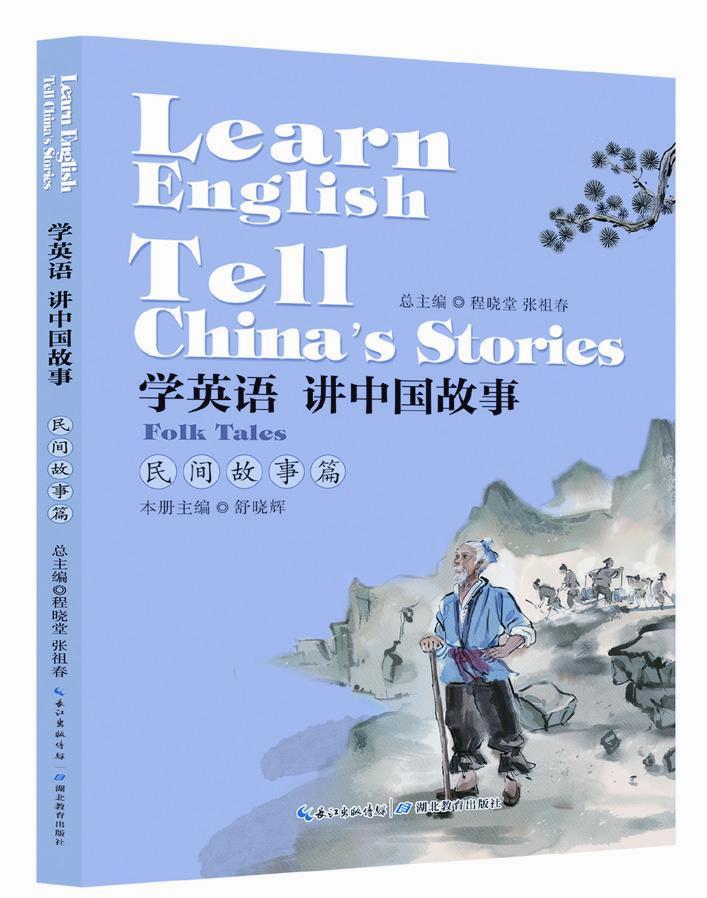高山流水遇知音

During the Spring and Autumn period, there was a man named Yu Boya(俞伯牙), who had a deep passion for music since his childhood. His teacher once took him to Penglai (蓬莱) Mountain in the East China Sea to appreciate the beauty of nature, from which he realized the true meaning of music. The music he played was exquisite and pleasant to listen to and it was just like a stream flowing in the mountain. Although many people praised his music, he believed that he had never encountered anyone who could really understand his music. He had been looking for his soulmate in music.
One year, Yu Boya was directed to the State of Chu by the king of the State of Jin. On Mid-autumn Day, he arrived at Hanyang (汉阳) by boat. The boat had to be berthed at the foot of a small hill due to the big waves. At night, the wind and waves gradually died down, the moon and stars came through when dark clouds had rolled by. Looking at the charming moon in the sky, Yu Boya had an itch to play. He took out the instrument he had brought with him and played one piece after another attentively. While he was totally absorbed in the beautiful sound of the instrument, he suddenly saw a man standing motionless on the shore. Yu Boya was so surprised that his hand applied a sudden force. “Bang!” One of the strings broke. Yu Boya was just wondering who he was and why he came here, when he heard the man loudly say to him, “Dont be afraid, Sir. I am just a woodcutter. I happened to hear you play on my way home. Your music is so wonderful that I cant stop listening.”
Yu Boya took a closer look at him through the moonlight. There was a pile of dry wood beside the man. He was a woodcutter indeed. Yu Boya thought: How can a woodcutter appreciate my music? So he asked, “Since you know the music, tell me what it is?”
Hearing Yu Boyas question, the woodcutter smiled and replied, “Sir, what you just played is ‘Confuciuss Praise of Yan Hui (颜回), but unfortunately, when you hit the fourth sentence, the string broke.”
Amazed at the woodcutters answer, Yu Boya was overjoyed and invited him to board the boat immediately, eager for a further talk with the woodcutter. The moment the woodcutter saw Yus instrument, he exclaimed, “This is yaoqin (瑶琴), and it was made by Fuxi (伏羲).” Then he talked about the origin of this yaoqin. After hearing the woodcutters story, Yu Boya could not help but admire him in secret. Then Yu Boya played a few songs for the woodcutter, asking him to identify their meanings. When the music he played was strong and loud, the woodcutter said:“It expresses the towering mountains.”When the music became clear and smooth, the woodcutter said: “This sound describes the endless flowing water.”Hearing this, Yu Boya was so surprised. He used to express his thoughts in his music but no one could understand in the past, while the woodcutter in front of him could appreciate his music so well. Unexpectedly, in the wilderness, he came across the bosom friend he had longed for all the time. The woodcutter told him his name — Zhong Ziqi (鐘子期). That night, Yu Boya and Zhong Ziqi talked and drank a lot; they became sworn brothers and promised to meet again on Midautumn Day the next year.

On Mid-autumn Day the following year, Yu Boya came to the estuary in Hanyang as appointed. He waited and waited but there was no sign of Zhong Ziqi. He played the yaoqin, hoping to summon his bosom friend, but after a long time, he still didnt see anyone. The next day, Yu Boya asked an old man about the whereabouts of Zhong Ziqi. The old man told him that Zhong Ziqi had died of illness. Before he died, he left his last words, “My grave must be built on the riverbank. On Mid-autumn Day, I can listen to the music of Yu Boya.”
After hearing the old mans words, Yu Boya was deeply grieved. He came to Zhong Ziqis grave and played the ancient tune “High Mountains and Flowing Water” (《高山流水》) sorrowfully. When he had finished playing, he broke the strings, sighed and smashed his beloved yaoqin on the bluestone. He said sadly, “My only bosom friend is no longer alive. Who else can I play for?”
The friendship between the two “bosom friends” touched the descendants. People built the Guqin Platform (古琴台) in the place where they met. Until today, people often use the word “bosom friend” to describe the friendship between true friends. This story shows us that appreciation and understanding are the most valuable things in human relationships.
Notes
berth v. 停泊
bosom adj. 知心的
descendant n. 后代
encounter v. 遇到
estuary n. 河口
grieved adj. 悲傷的i
tch n. 痒;渴望

